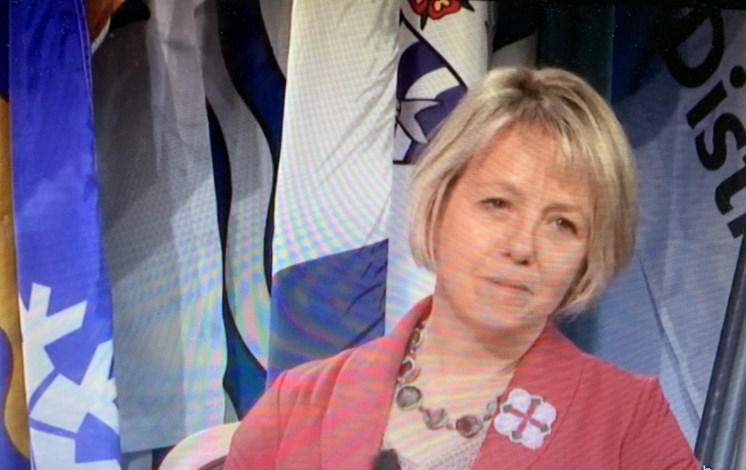Dr. Bonnie Henry has received death threats and has been forced to have security in her home as a result of people not liking what she’s done in response to the COVID-19 pandemic.
“There are people who don’t like what I say or don’t like what I do or don’t like my shoes,” the provincial health officer told a Union of B.C. Municipalities (UBCM) panel Sept. 22. “People think it’s OK to do that to women who are upfront.”
“We need to make it OK for people not to be OK with that,” she said.
Henry made the comments on a panel of successful B.C. women discussing leadership.
“We become targets,” Henry said in discussion with B.C. Lieut-Gov. Janet Austin, UBCM president Maja Tait and six-term chief of the Tsawwassen First Nation Kim Baird as they discussed qualities of leadership.
“Female leaders experience a greater scrutiny,” Austin said. “The whole culture of incivility is something that as a society we should not tolerate.”
Added Baird, “There is a culture of disrespect for politicians in this country. Social media has played a large role in this culture.”
People need to be told such behaviour is unacceptable, she said.
The discussion was part of how leadership and inequities in society can be addressed, how diversity can lead to better decision making for society.
Henry said good leadership could bring people together to find resilience to get through challenges.
Baird said the pandemic has shown people are capable of pulling together and showing kindness, compassion and empathy.
But, added Tait, the pandemic has also exposed inequalities in society – particularly the poor, vulnerable and First Nations.
“Hopefully, in a post-pandemic world, people think beyond recovery and hopefully can take action to make the world a better place,” Baird said.
Henry said some of those inequalities have been “glossed over for many years.”
So, what do B.C.’s top women leaders see as key leadership attributes?
They listed empathy, compassion, mentorship, the ability to listen, role-modeling, collective decision-making, teamwork, trustworthiness and dependability.
And niceness. Helping each other.
“Niceness does not mean we do not have a spin,” Henry said.
Many of those traits, said Austin, are found in women rather than men.
“What we actually see then is these good practices by women are the ones most required when dealing with rapid change,” the lieutenant-governor said.
Moreover, said Baird, “if you look around a table and you don’t see diversity, you can’t wait for someone else to fix that.”
And things are changing as women’s leadership capabilities are increasingly recognized and appreciated, Austin said.
“We do see increasing numbers of women moving into leadership roles,” he said.
Dealing with people who are scared or angry is also a key attribute, Baird said.
@Jhainswo



